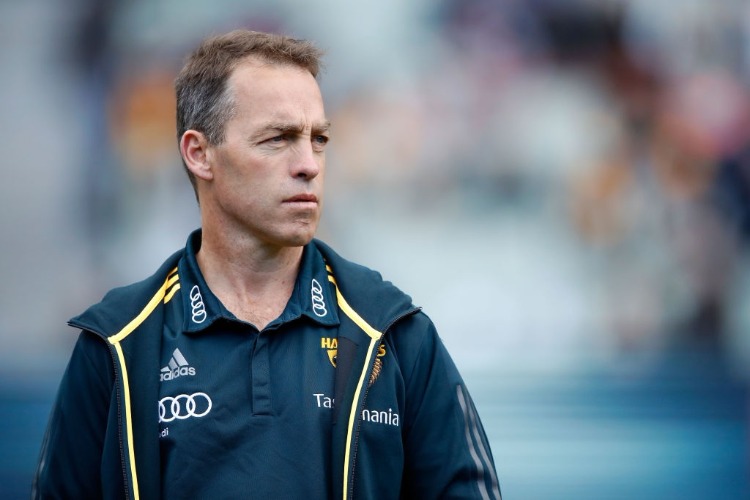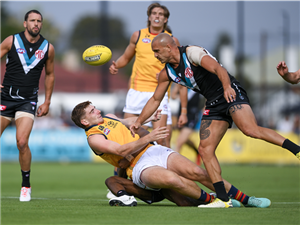
Brisbane coach Chris Fagan says he would love to be involved with a Tasmanian AFL team, while North Melbourne's Alastair Clarkson believes the potential start-up should emulate Geelong's approach to attracting players.
Tasmania is on the verge of having its own AFL team, with the federal government expected to announce this weekend it will cover the extra $240m funding required for a contentious new stadium in the state's capital.
The AFL has said entry to the competition is contingent on the construction of the $715 million stadium on Hobart's waterfront.
Proud Tasmanian Fagan looms as a logical target to become the new club's first senior coach.
The 61-year-old stressed he remains content and committed to Brisbane but was open to playing a role at the potential expansion team in the future.
"In 2028 I'll be 67, 68 - getting too long in the tooth to be the coach," he said.
"But you never know what the future holds.
"I love the Lions but if I'm not coaching by then I'd love to help Tassie out in some way."
A delighted Fagan hoped the stadium's impact could be similar to that of the redeveloped Adelaide Oval.
"(Hearing the deal was done) brought a smile to my face. Long overdue," he said.
"It's going to take a bit of work, you probably won't see a team until the stadium is built.
"Maybe 2028 ... that'll give a good amount of time to set it up in the right way."
Hawthorn captain James Sicily on Wednesday cast doubt on the potential club's ability to attract and retain players.
But Clarkson, who was an adviser to the Tasmania bid, said Hobart's quieter status could prove attractive, citing how Geelong had targeted locals, country boys, and older players with families.
"I just look at the Geelong footy club and the significant strategic advantage they've got by offering something different," he said.
"They are an AFL professional team playing in a rural community. There's something special about that.
"You say, 'Oh, that's not going to be too attractive for people, they just want the bright lights'.
"Jeremy Cameron didn't want the bright lights, neither did Paddy Dangerfield.
"If they set their club up in the right way down there, I don't see it as an impediment. I actually see it as a competitive advantage."
Geelong coach Chris Scott said building a successful environment would be key to Tasmania's value as a destination for players.
"This idea that people won't want to be in Tassie or they won't be able to keep them, well, that depends on how well they go," Scott said.
Clarkson was confident there was enough talent to support a 19th AFL team, especially if a Tasmanian academy brought more local talent to the fore.
He accepted a Tasmanian team would "poach" players from other clubs and get additional draft picks but said the league and clubs had learned from previous expansions.
Scott said there was "clearly" enough talent available but said clubs' player list sizes would need to be trimmed.
"It's just a matter of how you distribute that talent and there are too many players on lists as there is," Scott said.
"If there was one extra team but fewer players on every list then you don't need to find any players.
"You've got more than enough already ... but that's a decision that the AFL and the PA (AFL Players' Association) have to make."







